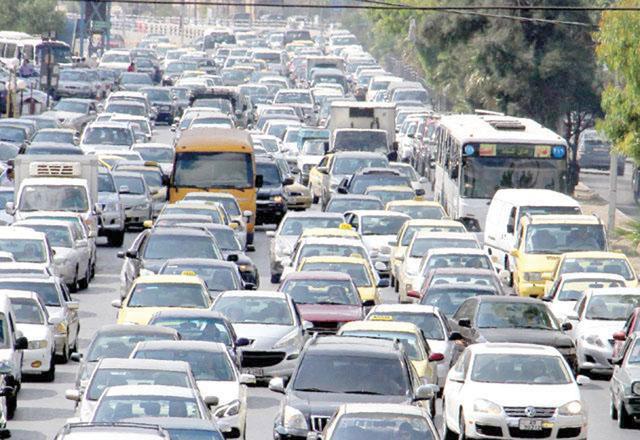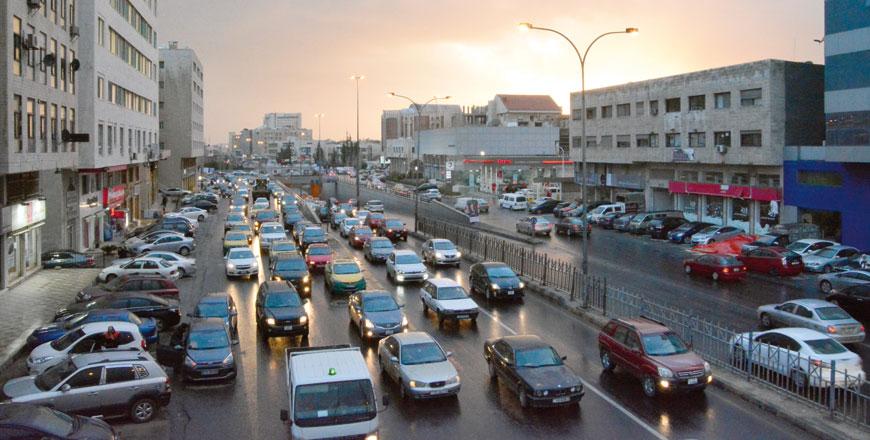You are here
JLW report highlights labour rights breaches of rideshare drivers
By JT - Aug 28,2022 - Last updated at Aug 28,2022

The Jordan Labour Watch, affiliated with the Phenix Centre for Economic and Informatics Studies, on Sunday revealed significant infringements on the rights of drivers who work for smart transport companies (File photo)
AMMAN — The Jordan Labour Watch (JLW), affiliated with the Phenix Centre for Economic and Informatics Studies, on Sunday revealed significant infringements on the rights of drivers who work for smart transport companies.
An JLW report highlighted drivers’ low income, as operating companies continue to skirt fees set by the Land Transport Regulatory Commission, reducing prices for passengers at the expense of drivers.
The report also showed that contracts signed between the drivers and the companies are formulated in a manner that serves the interest of companies, exploiting drivers’ need to work.
Drivers do not enjoy social protections or job security, and are often banned from logging into their companies’ applications if they object to specific policies, the report indicated.
Drivers accused the relevant authorities, such as the Ministry of Transport and the LTRC, of “not standing firm against the companies' intrusion”.
The report showed a clear decline in the number of drivers using smart transportation applications, dropping from 13,000 to 9,500 drivers.
The report attributed the decrease in the number of drivers to violations they were subjected to and mistreatment of companies.
In protest of these violations, drivers have carried out more than 10 protests in front of the Transport Ministry, the LTRC and the Lower House since the beginning of last year, in addition to organising several work strikes.
The series of protests did not bear fruit and none of the drivers' demands were answered, the report showed.
Drivers called for abolishing the “arbitrary” driver-ban system, as companies use this feature to ban any driver partially or permanently if they object to certain policies.
They also demanded the ability to renew their permits through the commission without referring to the hiring company. The drivers are also calling for companies’ deductions from drivers’ trips to be set at a maximum of 15 per cent, extending the operating life of vehicles to 10 years instead of seven, and cancelling the 4 per cent government tax on rides, which is meant to be paid by the companies, not the drivers.
Drivers demanded that companies adhere to the commission’s fees, which are 20 per cent more than yellow taxi metres, adding that discounts and offers should not come at the expense of drivers, but of companies.
They stressed the need to impose penalties on companies in violation of the regulations.
The report recommended ceasing violations against drivers, tightening control over operating companies and imposing stiffer penalties for violating the instructions of the Land Transport Regulatory Commission.
Since most drivers’ vehicles are 2016 and 2017 models, they will be legally out of compliance in 2023 and 2024.
In this regard, the report recommended increasing the operating life of vehicles to 10 years, instead of seven.
Related Articles
AMMAN — A single unlicensed ride-hailing application company has over 40,000 drivers, while Jordan’s five licensed companies together employ
AMMAN — More than 500 drivers from ride-hailing apps — mainly Uber and Careem — staged a sit-in in front of the Ministry of Transport on Wed
AMMAN — Ride-hailing application drivers are on a strike against “unkept promises”. The strike has led to price increases for cus
















